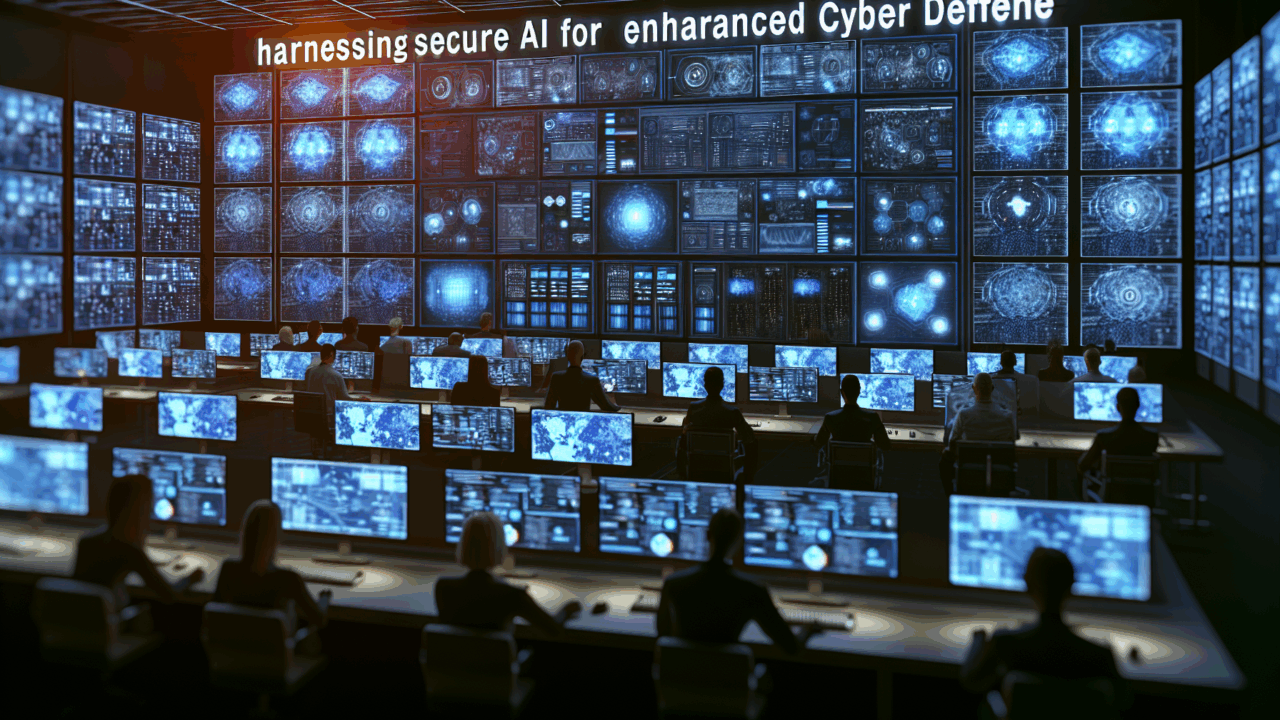Artificial Intelligence (AI) is revolutionizing cybersecurity, but its advantages hinge on our ability to safeguard the AI itself. Discover the path to a secure, AI-empowered defense.
Understanding AI in Cybersecurity
The deployment of Artificial Intelligence in cybersecurity signifies a transformation in how organizations defend against sophisticated threats. AI plays a pivotal role in reducing alert fatigue by intelligently filtering out false positives, allowing analysts to concentrate on genuine threats. It excels in identifying patterns that may indicate breaches by analyzing data at scale, a task impractical for human operators. This capability leads to proactive threat hunting and rapid incident response. Furthermore, AI extends cybersecurity measures by scaling operations; it adapts and learns from new information, continuously improving its defensive strategies beyond the limitations of human oversight. Thus, AI offers a dynamic and resilient approach to securing digital infrastructures.
Evaluating AI Vulnerabilities
- AI systems, akin to any software, are susceptible to a spectrum of vulnerabilities, which, if not properly addressed, could undermine the effectiveness of cybersecurity measures.
- Key to the resilience of AI is the integrity of data used for training algorithms. Contaminated datasets can lead to biased, unreliable, or easily subverted AI models.
- Intruders might craft adversarial examples—an input deliberately designed to deceive the AI—to trigger a false negative or positive, which can gravely compromise security systems.
- Understanding these vulnerabilities is pivotal for designing secure AI, ensuring that safeguards such as robust dataset validation and adversarial training are incorporated.
- By recognizing these weaknesses early, preemptive measures can be established to deter AI exploitation, thereby fortifying the overarching cybersecurity infrastructure.
- Principle of Least Privilege: AI systems should be designed to operate with the minimum level of access rights necessary to accomplish their tasks to prevent exploitation.
- Robust Data Encryption: All data used by AI, including inputs, outputs, and intermediate computations, must be encrypted to preserve confidentiality and integrity.
- Regular Security Audits: Frequent, thorough audits and code reviews should be conducted to detect and patch vulnerabilities in AI systems promptly.
- Adversarial Training: AI models should undergo training against an array of cyberattacks to enhance their resilience and ability to detect novel threats.
- Continuous Monitoring: AI systems require real-time monitoring to quickly identify and respond to potential security breaches or anomalies in their operation.
- Incident Response Planning: A well-defined incident response plan should be in place to tackle AI security breaches effectively and to limit damage.
- Transparency and Explainability: AI systems must be transparent in decision-making processes to facilitate easy verification and trustworthiness, ensuring that actions taken can be explained and understood.
- As AI technology advances, its integration in cyber defense strategies will inevitably become more comprehensive and sophisticated, offering unparalleled capabilities in identifying and mitigating threats.
- However, the evolution of AI also presents ongoing challenges; as these systems become more complex, so too does the task of ensuring their security against potential exploits, such as adversarial attacks or manipulation of their learning processes.
- Diligence in security will require a proactive and adaptive approach, with continuous monitoring and updating of AI security measures to counter evolving threats. This entails innovative defensive strategies, including the incorporation of AI to safeguard itself—a self-regulating mechanism for enhanced protection.
- The sustainable security of AI in cyber defense will depend on a constant exchange of knowledge between cybersecurity experts and AI developers, fostering a culture of shared responsibility in safeguarding these intelligent systems.
Conclusions
AI’s role in cybersecurity is undeniable, promising a smarter defense grid. A secure implementation of AI technologies ensures we can fully exploit this potential responsibly and effectively.
Source: https://thehackernews.com/2025/10/securing-ai-to-benefit-from-ai.html
